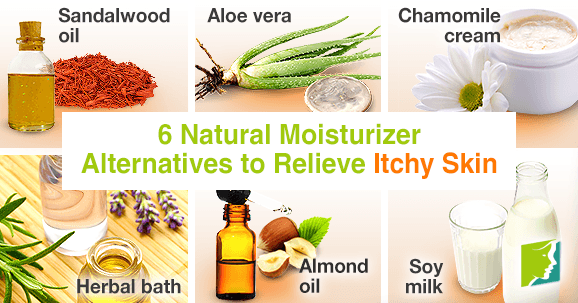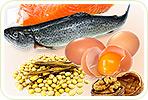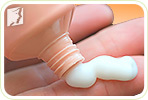Dealing with itchy skin isn't anyone's cup of tea, but many commercial solutions for the problem can be ineffective or expensive. There are; however, natural options available that serve as alternatives. Read on to discover six herbal alternatives with specific properties that may help relieve your itch.
Sandalwood Oil
Easily found in health and wellness stores, sandalwood oil is an option for itchy skin relief. This herbal preparation, which also exists as a paste, works by moisturizing the skin and making it more elastic. In fact, this plant has been used in cosmetics since ancient times.
Aloe Vera
Perhaps the best-known natural remedy for the condition, aloe vera provides famously effective relief from skin conditions, acting as an antimicrobial to kill off bacteria. It is thought that aloe helps with burns, wounds, and dryness by increasing circulation to small blood vessels in the skin, speeding up the healing process. It can be applied topically and produces a soothing feeling.
Chamomile Cream
As an anti-inflammatory, chamomile has been used for centuries to reduce swelling, rashes, and bumps on the surface of the skin. Chamomile can penetrate into the deeper layers of the skin to reduce inflammation and soften it. For an added dose of potency, the herb pairs well with calendula - also known as marigold.
Herbal Bath
For itchy skin relief that washes over the whole body, an herbal bath can be a valuable solution. Lukewarm water is best, so as not to dehydrate the skin, and relaxing, aromatic herbs like lavender and rosemary soothe the skin as well as the senses. They are frequently used in aromatherapy, as well, and may help to reduce stress at the same time, countering stress-induced itchiness.
Almond Oil
Known to be highly nutritious when ingested, almonds can additionally benefit the body externally. Almond oil in particular is thought to have anti-inflammatory, emollient, and sclerosant properties, which - though not enough evidence has yet been accumulated - are believed to be highly connected with complexion and skin tone improvement. Additionally, almond oil has been used in historical medicine systems, such as Ayurveda and Traditional Chinese Medicine, to relieve dry skin.
Soy Milk
Soy preparations, including cream and milk, have been shown to have antioxidant properties. Soy can moisturize the skin, increase elasticity, and reduce skin blotches. This is thanks in part to its compound genistein, which is a phytoestrogen that promotes the production of collagen. Collagen is any important protein that makes up the structure of the skin, helping to build skin strength and reduce dryness.
Itchy skin is always unfortunate to discover, but with so many treatment options available, no one has to live with it as a chronic condition. Try out one or more of the suggestions listed above or foods to relieve itchiness and prevent dryness. If the condition persists even with a moisturizer, be sure to consult your dermatologist.
Sources
- Ahmad, Z. (2010). The uses and properties of almond oil. Complementary Therapies in Clinical Practice, 16(1), 10-12. doi: 10.1016/j.ctcp.2009.06.015
- Kapoor, S. & Saraf, S. (2010). Assessment of viscoelasticity and hydration effect of herbal moisturizers using bioengineering techniques. Pharmacognosy Magazine, 6(24), 298-304. doi: 10.4103/0973-1296.71797
- National Institutes of Health. (2014). Aloe: MedlinePlus Supplements. Retrieved October 29, 2015, from http://www.nlm.nih.gov/medlineplus/druginfo/natural/607.html
- Srivastava, J.K. , Shankar, E. & Gupta, S. (2010). Chamomile: A herbal medicine of the past with bright future. Molecular Medicine Reports, 3(6), 895-901. doi: 10.3892/mmr.2010.377
- Stallings, A.F. & Lupo, M.P. (2009). Practical Uses of Botanicals in Skin Care. The Journal of Clinical and Aesthetic Dermatology, 2(1), 36-40. Retrieved from http://www.ncbi.nlm.nih.gov/pmc/articles/PMC2958188/




